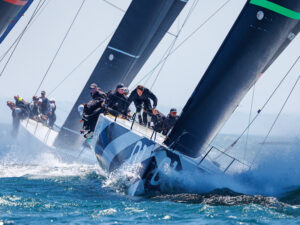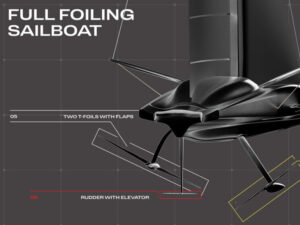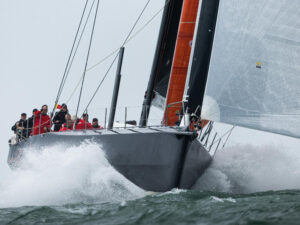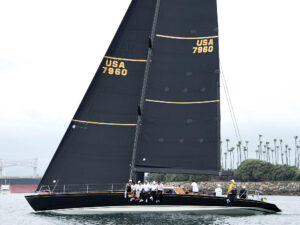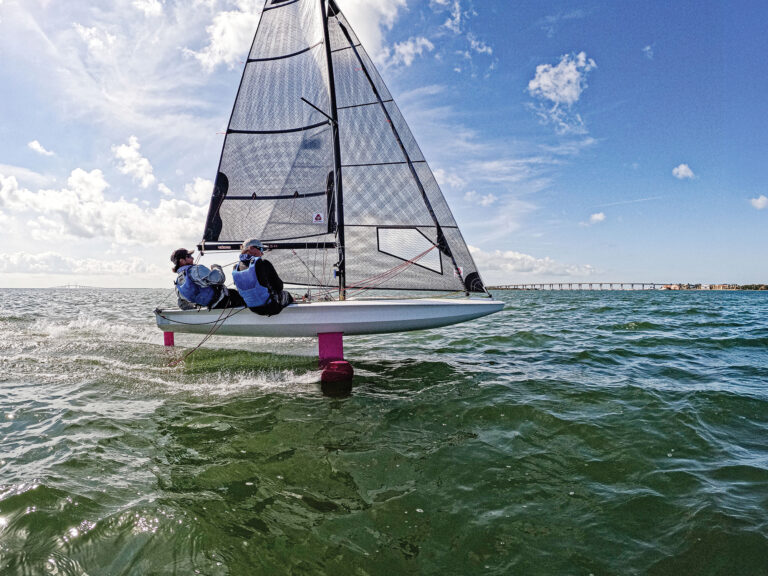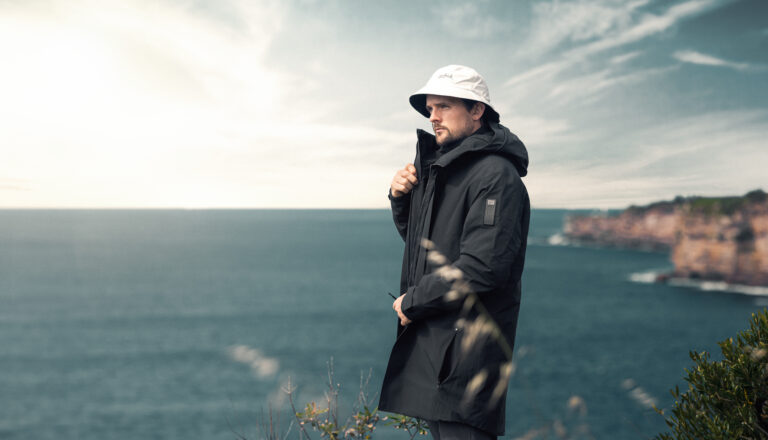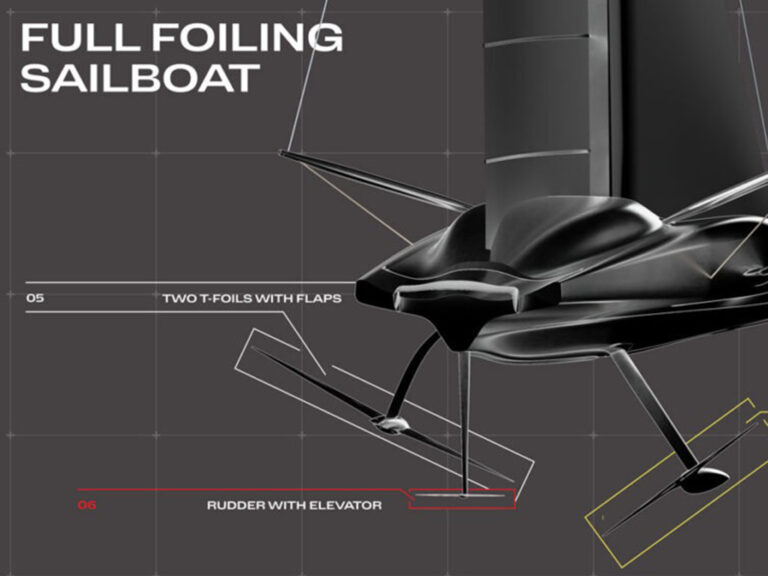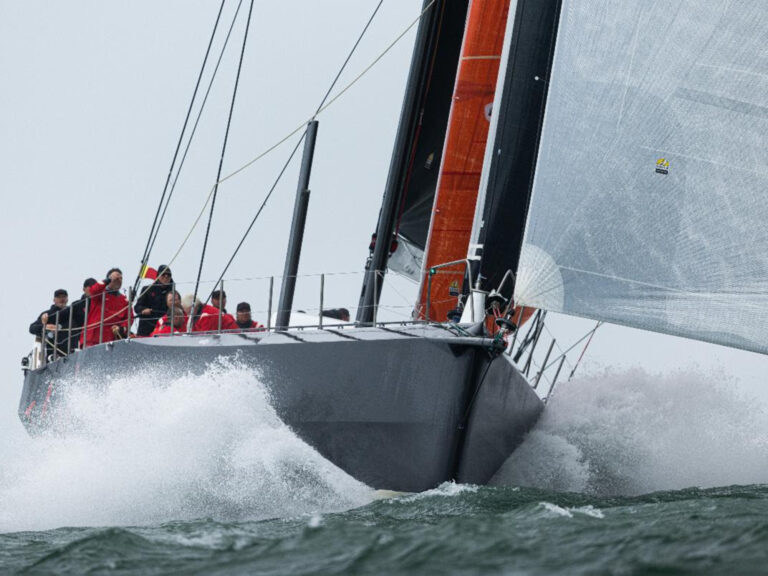
Olympic Int pt. 1
Over the past five Olympic Games, the U.S. Sailing Team has performed well, earning 27 medals out of 46 classes. This impressive performance will be tested in Athens. Competition is getting tougher. In fact, parity is the trend. For example, in Sydney in 2000, 16 countries shared 33 medals. And in Savannah in 1996, a record 23 countries earned medals. Still, in Athens, America’s chances are encouraging. The U.S. sailors have been working hard preparing for the Games. While all were definitive winners in their respective classes in the U.S. Trials, they’ve realized that qualifying was just the start of their preparation. I had a chance to interview each sailor and found their attitude to be very determined. Here are their thoughts. FINN: Kevin Hall, 34 How important were the Trials in helping you prepare for the Games? The practice of peaking physically, mentally and perhaps spiritually is invaluable. The racing is very different in a fleet of boats with many different speeds and fitness levels to the racing at international events or the Games. Was your collegiate career helpful in racing a Finn? The short answer is no. The long answer is that it was maybe even detrimental in some ways. Skill sets of sailing are such low priorities in college sailing, such as tuning, equipment choice, maintenance, logistics, and fundraising. What are your prospects for a medal? I have a tremendous amount of experience to draw upon and a strong history of performing well at the main event. If I am able to use all my skills when the races start, I have a good chance at a medal. 49ER: Tim Wadlow, 29 Have you consulted with the McKee brothers (49er bronze medalists in 2000) regarding what it will be like at the Games? We chatted with Jonathan before the Olympic Trials and we plan to talk again before the Games. What’s it is like to sail a 49er? Sailing 49ers in a breeze is pretty scary. You go really fast and are relatively out of control. With more experience in the boat it starts to become more and more like sailing any other boat. Has your college experience been helpful? Super helpful. In college you learn how to compete and how to win. When you leave college and begin an Olympic campaign you learn a whole new set of skills around tuning, equipment selection, and boat maintenance. What are your prospects for a medal? We are not a favorite, but a serious contender. We were fifth at the World Championship this past April. 49ER: Pete Spaulding, 28 What’s it like crewing on a 49er? The crew trims the mainsheet, which gives the crew quite a bit of control of the boat. As a crew on the 49er, it is important to always think two steps ahead of where you are because you are going very fast at times. What is your training routine? Three years ago we had essentially no 49er experience. To get to the world level we needed to race all the major European events. We typically go for two- to three-week trips and split our time racing and training about 60 percent to 40 percent, respectively. YNGLING: Carol Cronin, 39 Many thought you were an underdog in the Trials. Was this helpful? It’s always helpful to stay “under the radar,” but the Games will be a very different regatta: 17 boats instead of 6, so there’s more room for points. How do you divide up the duties of your crew? Nancy makes the big picture decisions, I try to execute that decision, and Liz makes reminders at key times to keep us on track. What are your prospects for a medal? The U.S. traditionally medals in keelboat events, women’s events, and first-time events–the Yngling fits all three criteria. We are working hard to ensure that tradition is maintained. YNGLING: Nancy Haberland, 43 Does your coaching experience at the Naval Academy help your racing? Certainly coaching at the Naval Academy and doing Olympic-level sailing are complimentary. To be in the environment all day where I’m thinking about sailing helps keep my mind active, even if I’m not racing. Being able to work closely with a top-level sailor-umpire like Brad Dellenbaugh is always educational. Being at the Naval Academy also helps motivate me to stay fit. Watching midshipmen run around the yard and working out at the wee hours of the morning with their grueling schedules gives me no excuses to slack with my routine. What is your role on the boat? My role is foredeck, jib trimmer, and tactician. However, there are other roles. I also think of myself as the one to scramble around and get any job done, adjusting spreaders, changing sails, etc. Our crew is so dynamic; at times, we all do each other’s “jobs” as needed. My two other crew would quickly agree that one of my most important job is to absorb the oncoming waves. Even though I’m the smallest crew on the boat, they appreciate my wave-blocking abilities. Do you learn a lot from your competitors? I’m always learning from my competitors. Even if it’s lessons I’ve learned 100 times, a competitor will teach me the lesson again. Using your competitors is the only way to gauge whether you’re getting better. Is this the biggest thrill you have had in sailing? This is definitely the pinnacle of my sailing career. I feel like I’ve been so close to achieving something truly outstanding so many times in my sailing career, but never quite accomplished the task, or won. Winning the Trials is still a dream come true, with medaling at the Olympics the only one to top that. YNGLING: Liz Filter, 36 Did the trials give your team a lot of encouragement? The trials were a real confidence boost to kick off the next stage of our preparations. We feel we’re starting over again. What training are you doing to prepare? We experiment with various aspects of our program. For example we have a match-racing event in our schedule that will help us practice more boat-on-boat situations. Part II of Jobson’s interview, including quotes from the U.S. representatives in the Europe, 470 Men’s, Star, and Tornado classes, will be posted on July 26.

